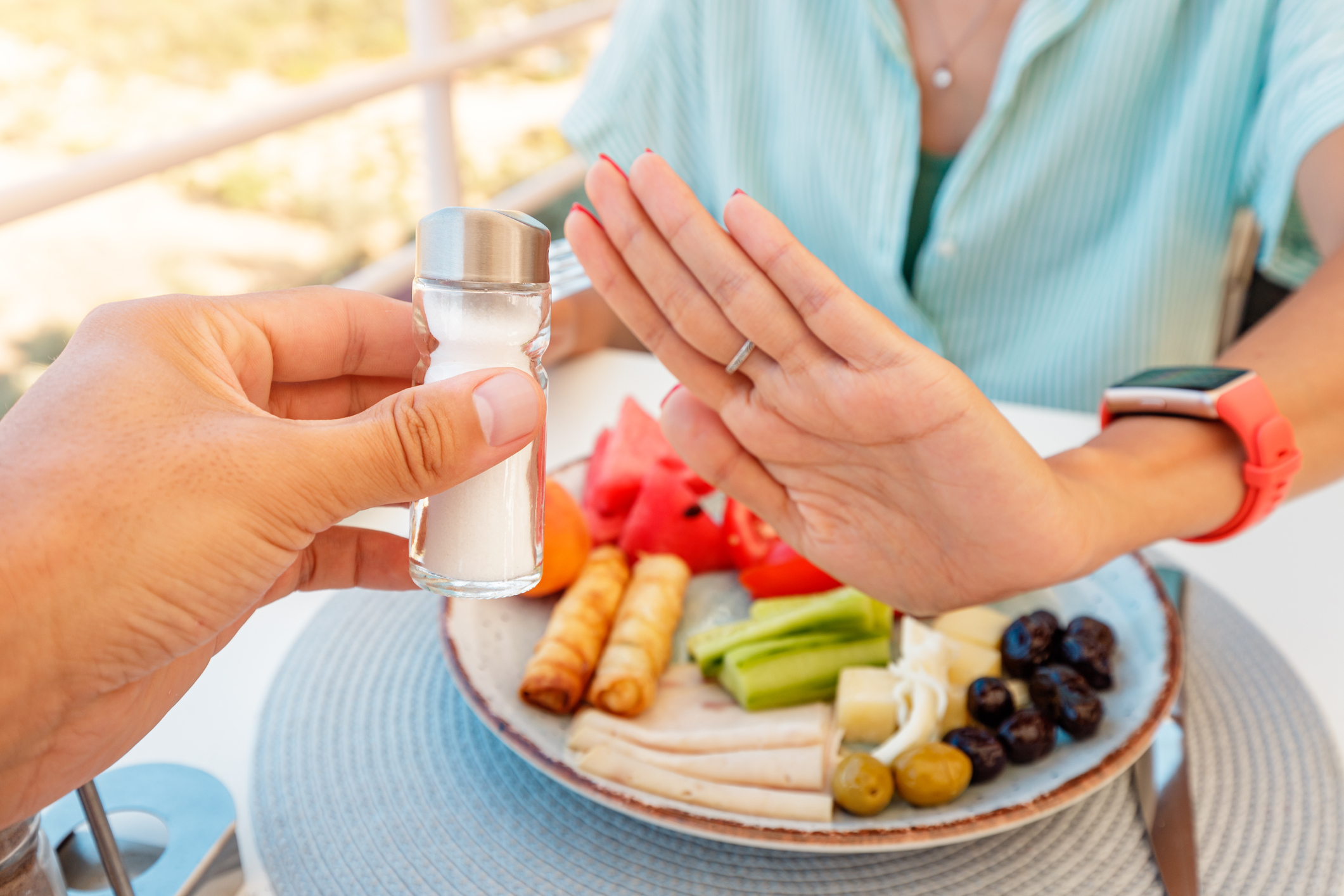Most middle-aged and older adults know the basics of a healthy lifestyle – don’t smoke, eat a nutritious diet with limited processed foods, get regular exercise, and practice stress management. But ongoing research can change the intake recommendations of alcohol, red meat, fats, sugar, and salt which can be confusing to consumers. A new large-scale study, published in the Journal of the American College of Cardiology found that avoiding adding a little extra salt to foods regularly can lead to a lower risk of heart disease events.
According to a recent News Medical Life Sciences report, people who don’t often add a little extra salt to their foods were found by researchers to have a reduced risk of heart disease, heart failure and ischemic heart disease. Even among people who follow a DASH diet, changing habits to reduce salt consumption could improve heart health further.
A DASH-style diet is often recommended to patients to prevent or lower the risk of heart disease. The diet limits the consumption of red and processed meats and builds meals around vegetables, fruit, whole grains, low-fat dairy, nuts and legumes. Recent clinical studies have found that combined with a reduction in sodium consumption, the DASH diet was beneficial for cardiac health.
Although study participants who less frequently added salt to foods were also more likely to be women, white, have a lower BMI, consume moderate amounts of alcohol, were less likely to be current smokers and were more physically active, researchers are encouraged that shaking less salt on meals after their preparation could have a beneficial effect on heart disease risk.
The takeaway? Even when food is prepared with some salt for flavour, by skipping the extra sprinkling of salt at the table, over time adults can lower their risk for heart disease without sacrificing taste. Small adjustments in daily lifestyle habits can have a significant impact on health and disease prevention. Swapping out soda for water, cutting back on alcohol, limiting red meat, adding less salt to foods, and moving more each day are simple behavioural changes we can all make to improve health, well-being and longevity.
The American Heart Association recommends no more than 2,300 milligrams of sodium(about 1 tsp) per day, aiming for the ideal limit of no more than 1,500 mg per day for most adults. Because most adults consume far too much sodium, cutting back by even 1,000 mg a day can yield significant improvements in blood pressure and heart health. Packaged and processed foods and restaurant meals are common sources of high amounts of sodium. Cooking from scratch at home not only is healthier, but often much less costly, and gives people more control over the nutritional content of their meals. Try using herbs and spices like black pepper, garlic, paprika, oregano, or cayenne pepper to punch up the flavour of foods without adding too much salt.






Add Your Voice
0 Comments
Join the Discussion